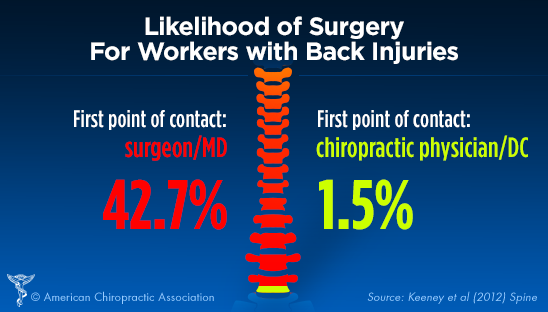Nutrition'S Impact On Back Pain Alleviation: Dietary Choices To Accept And Those To Stay Away From
Nutrition'S Impact On Back Pain Alleviation: Dietary Choices To Accept And Those To Stay Away From
Blog Article
Authored By-Duus Jordan
When it concerns handling your pain in the back, the food selections you make can substantially influence how you feel daily. Visualize being able to alleviate your pain simply by readjusting what you consume. By understanding the duty of nourishment in neck and back pain management and understanding which foods to integrate or steer clear of, you can take proactive actions towards a healthier and a lot more comfy way of living. normal back in between nourishment and back wellness is extra extensive than you may recognize-- let's check out exactly how certain foods can either calm or exacerbate your pain in the back.
Significance of Nutrition in Back Pain
Nourishment plays a vital role in taking care of pain in the back. Your diet can considerably impact swelling degrees and overall discomfort degrees in your back. Eating a balanced diet rich in nutrients like vitamins D and K, calcium, magnesium, and omega-3 fats can help in reducing swelling and strengthen bones, which are important for back health and wellness.
Furthermore, preserving a healthy weight with appropriate nutrition can alleviate stress on your spinal column, minimizing the risk of back pain.
Furthermore, certain nutrients like antioxidants located in vegetables and fruits can help fight oxidative stress and promote healing in the body, including the back muscular tissues and back.
On the other hand, taking in too much amounts of processed foods, sweet beverages, and unhealthy fats can contribute to inflammation and weight gain, exacerbating pain in the back.
Foods to Eat for Back Health And Wellness
To support a healthy back, including nutrient-rich foods right into your day-to-day dishes is essential. Consisting of foods high in anti-oxidants like berries, spinach, and kale can help reduce inflammation in your back, easing pain and pain. Omega-3 fatty acids discovered in fatty fish such as salmon and mackerel have anti-inflammatory homes that can profit your back health.
Furthermore, eating nuts and seeds like almonds, walnuts, and chia seeds gives vital nutrients like magnesium and vitamin E, which sustain muscle mass feature and reduce oxidative tension. Integrating lean proteins such as hen, turkey, and tofu can help in muscle mass fixing and upkeep, promoting a strong back.
causes for lower back pain to consist of milk or strengthened plant-based choices for calcium to sustain bone health and wellness. Finally, moisturize with a lot of water to maintain your back discs moistened and functioning optimally. By including these nutrient-dense foods in your diet plan, you can nurture your back and support general spine health.
Foods to Prevent for Back Pain
Choose avoiding refined foods high in added sugars and trans fats when looking for relief from pain in the back. These kinds of foods can add to inflammation in the body, which might aggravate neck and back pain. Say no to sweet treats like candy, pastries, and sweet drinks, in addition to fast food things like burgers, french fries, and fried poultry that are often loaded with trans fats.
Furthermore, steer clear of foods having high degrees of polished carbohydrates, such as white bread, pasta, and pastries, as they can surge blood sugar level degrees and possibly worsen swelling in the body.
It's likewise wise to restrict your intake of foods high in hydrogenated fats, like red meat and full-fat dairy items, as they can add to inflammation. Refined foods like delicatessens meats, chips, and packaged treats are commonly high in saturated fats and need to be eaten in small amounts.
Final thought
To conclude, taking note of your diet and making clever food selections can have a considerable impact on managing back pain. By incorporating nutrient-rich foods like berries, fatty fish, nuts, and lean healthy proteins, and preventing processed and sweet things, you can help reduce swelling and support overall back wellness. Keep in mind, what you eat plays an essential function in just how you really feel, so make sure to prioritize your nutrition for a much healthier back.
